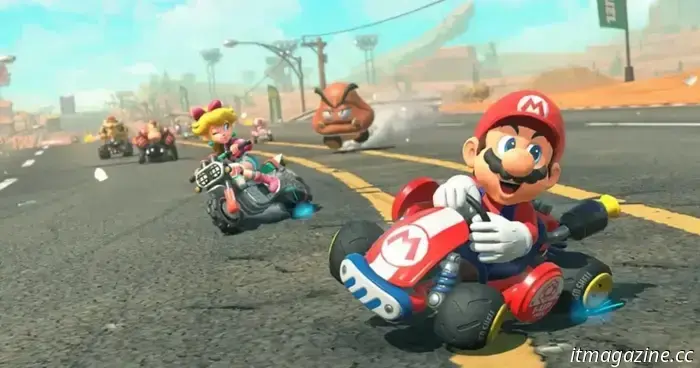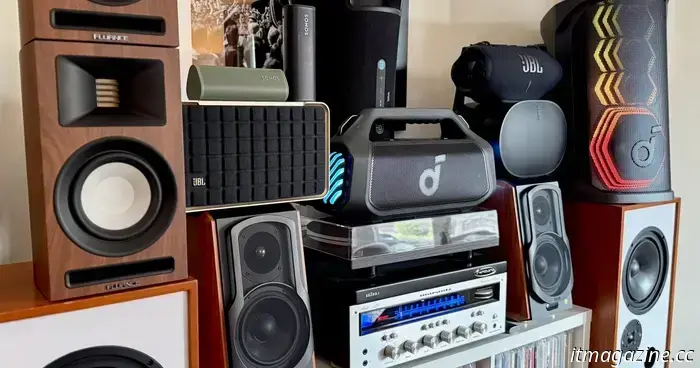
It’s starting to seem as though gaming may not be for everyone.
Over the years, the Nintendo brand has evolved to keep up with the times, yet it has consistently been associated with one image (or phrase, to be more precise): E for Everyone. For decades, the iconic developer and publisher has maintained a core philosophy that allows its games and consoles to reach players of all ages and backgrounds. However, with the introduction of the Switch 2, it seems that may no longer hold true.
The Switch 2 was unveiled earlier this month, and despite the excitement surrounding it, there has been noticeable concern regarding its steep prices. The console has a preliminary price of $450, while a bundle containing Mario Kart World is set to retail for $500. This situation has been complicated by the prospect of US tariffs on a wide range of products, leading Nintendo to delay preorders in the US and Canada. The expectation is that when preorders do become available, they may come with a price increase, which is staggering considering the latest Mario Kart title is already priced at a hefty $80.
In the days that followed the announcement, many have discussed the personal implications of the new system, which is certainly a valid topic. However, an even more pressing issue feels overlooked.
I have a young cousin who lives for his Switch. He faced significant challenges early in life, so when he and his mother relocated closer to our family and started anew, it was crucial for us to better support him. For me, that meant welcoming him into my home and treating him like the little king he is. Since I’m more of a homebody, we spent a lot of time together, and he naturally gravitated towards the shows and movies I watched, especially the games I played.
He was particularly fascinated by my Switch. At just the right age, all the vibrant first-party Nintendo games captivated him, alongside Fortnite, of course. He would eagerly ask to play the titles I was testing for reviews. I can't express how much he wanted to either compete with or impress me while I played Bowser’s Fury, the standalone 3D Mario game that came with the Switch port of Super Mario 3D World. Even if it sometimes became a bit annoying, typical of childish behavior, it was wonderful to see his excitement while playing the games we shared.
Eventually, for one of his birthdays, he received his own Switch. Although I see him less frequently now, he almost always has it with him. I’m thrilled for him; he deserves all the happiness it brings.
When I learned about the pricing for the Switch 2 and the numerous new games—many of which already seem fantastic—I thought of him even before considering my own desires. I have a job (of sorts) and am self-sufficient. The Switch 2 is ultimately a business expense for me. Regardless of whether it remains at the announced price or increases due to the ongoing trade issues, I will be getting a Switch 2 soon, even though it may strain me financially.
However, I worry that my little cousin and other children from similar low-income families might not be able to enjoy the Switch 2 for a long time. While there’s no obligation to enhance the lives of these children, it feels like a significant shortcoming of the medium when it becomes so expensive that their chance to share in the joy is neglected.
Things weren’t always this way. Coming from a low-income family didn't stop me from enjoying the Nintendo 64, Game Boy (and its versions), or the Wii during my childhood. When consoles were out of reach, there were still handhelds like the PSP and the Nintendo DS that were much more affordable and filled with worlds ready to spark my imagination. Most of my friends and I grew up in affordable housing while our parents worked low-wage jobs in places like laundromats, local delis, and department stores. While I didn’t get to play every game my peers did (we were still poor), I wasn’t completely excluded.
I credit the relative affordability of gaming during that time for shaping my life. It influenced me in ways I'm still exploring. Although games may have kept me indoors a bit too much, contributing to my introverted tendencies, they also provided safety. The various virtual worlds I explored offered different possibilities, from which I could carve out a life that diverged from my predecessors. My closest friends and peers share similar experiences. I wish that same opportunity for my cousin, my nephews, and any child who might feel shut out from this community. When this space is inclusive and nurtures young players, it benefits everyone and allows it to thrive further.
Yet, as the structures around us falter and our leadership drives us toward disaster, I fear that future generations won’t enjoy the same privileges—privileges that should never have been deemed exclusive! Isn’t progress supposed to lead us to something better? Something that accommodates everyone, irrespective of age, race, background, orientation, or socioeconomic status? Stagnant wages, a dwindling workforce


Other articles
 My top 5 tracks for evaluating and testing speakers.
I evaluate speakers for my profession, and I have a selection of go-to tracks that I use to thoroughly assess their performance. Here are my top five!
My top 5 tracks for evaluating and testing speakers.
I evaluate speakers for my profession, and I have a selection of go-to tracks that I use to thoroughly assess their performance. Here are my top five!
 The ending of Sinners explained.
Ryan Coogler's monumental horror film, Sinners, offers a distinctive and multi-dimensional perspective on vampire horror, culminating in an impactful and moving conclusion.
The ending of Sinners explained.
Ryan Coogler's monumental horror film, Sinners, offers a distinctive and multi-dimensional perspective on vampire horror, culminating in an impactful and moving conclusion.
 Hayden Christensen is set to reprise his role in season 2 of Ahsoka.
At Star Wars Celebration, Rosario Dawson announced that Hayden Christensen will return for season 2 of Ahsoka.
Hayden Christensen is set to reprise his role in season 2 of Ahsoka.
At Star Wars Celebration, Rosario Dawson announced that Hayden Christensen will return for season 2 of Ahsoka.
 Delroy Lindo states that Marvel's Blade film 'lost its direction.'
The film has been completely taken off Marvel's release calendar and appears to be in a state of creative uncertainty.
Delroy Lindo states that Marvel's Blade film 'lost its direction.'
The film has been completely taken off Marvel's release calendar and appears to be in a state of creative uncertainty.
 Looking for new office furniture? Enjoy discounts of up to 20% during the Steelcase Spring Sale.
The Steelcase Spring Sale is providing discounts of up to 20% on various office furniture items, such as office chairs and standing desks. Act fast if you want to take advantage of the savings!
Looking for new office furniture? Enjoy discounts of up to 20% during the Steelcase Spring Sale.
The Steelcase Spring Sale is providing discounts of up to 20% on various office furniture items, such as office chairs and standing desks. Act fast if you want to take advantage of the savings!
 Rick Dalton's comeback? Rumored offer from Leo for a sequel to Once Upon A Time in Hollywood.
As a sequel to Once Upon a Time…in Hollywood is in the works, will Leonardo DiCaprio team up again with Brad Pitt? Discover the rumored proposal for Leo's comeback.
Rick Dalton's comeback? Rumored offer from Leo for a sequel to Once Upon A Time in Hollywood.
As a sequel to Once Upon a Time…in Hollywood is in the works, will Leonardo DiCaprio team up again with Brad Pitt? Discover the rumored proposal for Leo's comeback.
It’s starting to seem as though gaming may not be for everyone.
The cost of the Nintendo Switch 2 raises concerns about who might be excluded as gaming equipment becomes more expensive.
